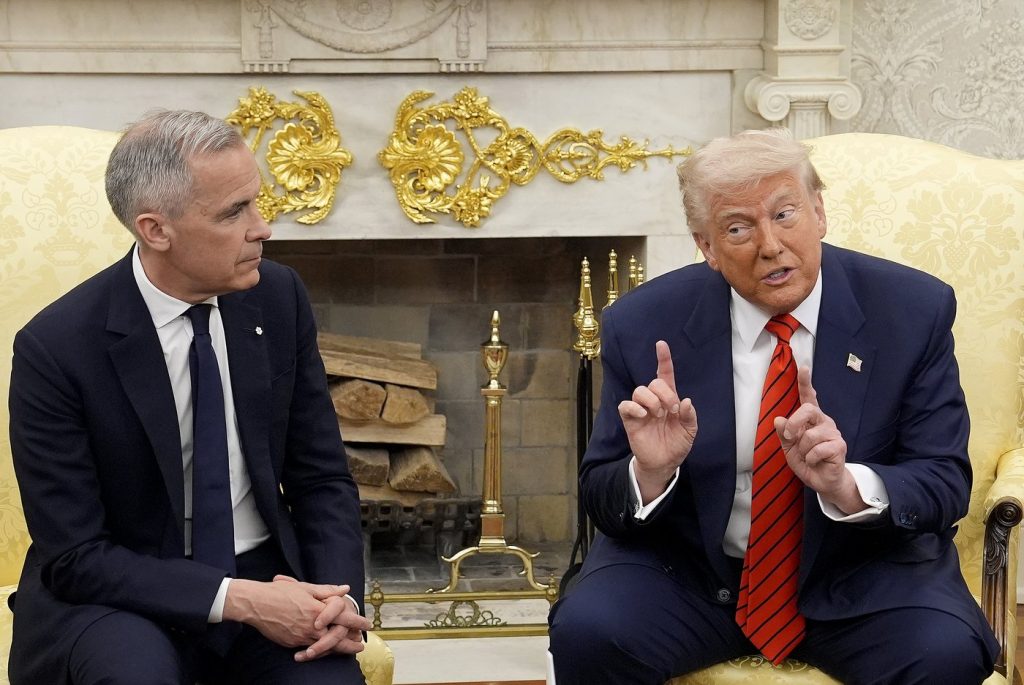A report by the C.D. Howe Institute proposes an innovative strategy for Canada in response to ongoing auto tariffs imposed by the U.S., specifically under the Trump administration. The report suggests that if Canada fails to persuade President Donald Trump to eliminate all auto tariffs, it should pursue a new auto trade agreement with the United States and Mexico. This agreement would involve implementing permanent import tariffs while offering automakers incentives if they meet certain local production minimums.
The author's insights draw from historical context, particularly referencing the 1965 Canada-U.S. Auto Pact. Stephen Beatty, a former executive at Toyota Canada, emphasizes the importance of a strategic approach that can bolster Canada's automotive sector amid rising trade tensions. He recommends that Canada retaliate against any U.S. tariffs by imposing its own surtax on light-duty vehicle imports from the U.S. However, auto manufacturers that assemble vehicles or produce major components within Canada should receive proportional tax breaks based on their Canadian production levels.
This proposed strategy aims to create leverage as Canada anticipates renegotiations regarding the automotive provisions of the Canada-U.S.-Mexico Agreement (CUSMA). During these negotiations, Beatty highlights the necessity for Canada to advocate for the reinstatement of permanent tariffs on vehicle trade among the three nations, in addition to establishing a common external duty rate. He proposes that each country agree to waive certain duties on a set volume of imported vehicles from the other two nations for companies maintaining domestic manufacturing operations.
Beatty stresses that Canada must seize the current situation as a critical opportunity to present a viable plan for the auto sector. He warns against leaving the future of an industry that provides substantial employment on both sides of the Canada-U.S. border exposed to the uncertainties of recurring and potentially harmful tariffs. On April 3, 2025, a 25% tariff imposed by the U.S. on Canadian-built vehicles took effect, prompting Canada to respond with a similar 25% tariff on non-compliant U.S. vehicles under CUSMA.
In a recent development, U.S. Customs and Border Protection provided some relief, stating that automobile parts compliant with CUSMA would remain unaffected by Trump's tariffs. While Beatty suggests that the primary goal of Prime Minister Mark Carney’s administration should be to negotiate a new agreement with the Trump administration that focuses on maintaining largely tariff-free trade, he also emphasizes the necessity for a backup strategy.
Beatty raises concerns about the diminishing footprint of Canada’s vehicle assembly industry, describing this trend as troubling. Over recent years, shifts in North American production have seen an increase in manufacturing in Mexico while U.S. production has remained stable. The precarious state of Canada’s auto sector is further highlighted by recent layoffs, underscoring the urgent need to reassess the current strategy to protect jobs, investment, and the industry's viability.
Additionally, the suggestion to modernize the auto pact is aimed at complying with the Trump administration's focus on eliminating trade imbalances and reinforcing domestic supply chains. Beatty argues that revitalizing the North American automotive industry shared among the three countries could attract foreign investment and offer a competitive edge to companies that either originated in the region or have integrated North American practices into their operations.
In summary, the report articulates a strategic framework for Canada to revamp its approach to auto trade relations with the U.S. and Mexico, emphasizing protectionism balanced with growth incentives tied to local production. The proposed plan is seen as essential in navigating the complexities of international tariffs while fostering a robust automotive sector capable of withstanding external pressures.










